![]()
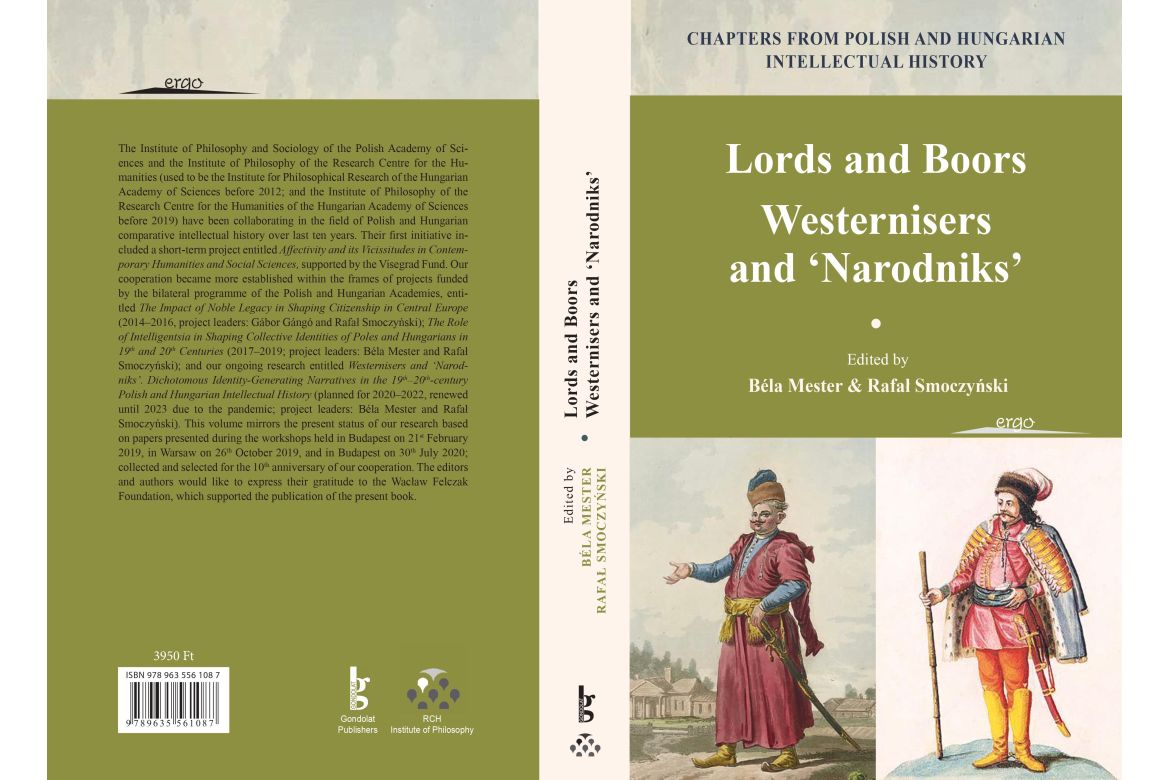
- Details
- Hits: 1496
The Institute of Philosophy of the Research Centre for the Humanities (IP RCH) & the Institute of Philosophy and Sociology of the Polish Academy of Sciences (IFiS PAN), cordially invite you to the upcoming Warsaw–Budapest hybrid workshop entitled New Chapters from Polish and Hungarian Intellectual History.
The workshop is organised by the opportunity of the publication of the volume entitled Lords and Boors – Westernisers and ‘Narodniks’ (eds. Béla Mester Rafał Smoczyński; IP RCH – Gondolat Publishers, Budapest, 2020).
Date: Monday, 30 August 2021
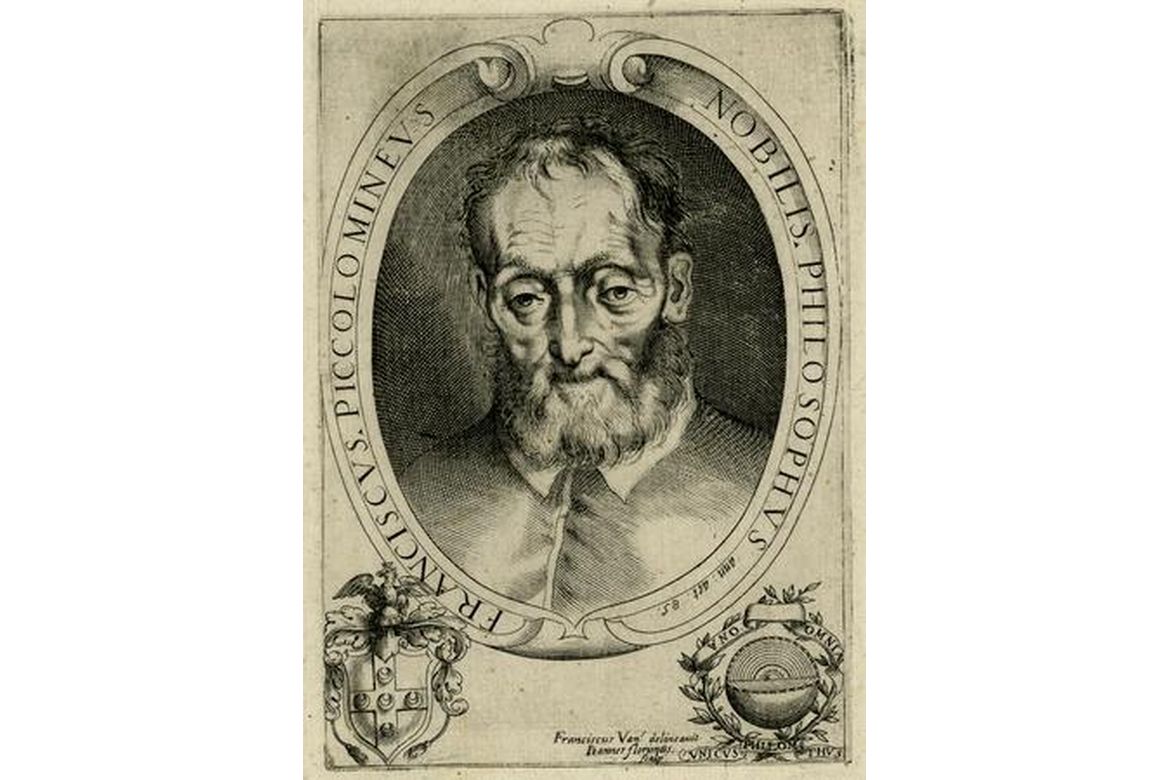
- Details
- Hits: 1309
Ferenc Hörcher presented a paper at the 14th Annual Conference of the International Society for MacIntyrean Enquiry (12-15. July , 2021). The online conference was organised this year by the University of Bergamo.
The title of Hörcher’s paper was: “Was Aristotle a Political Realist?” MacIntyre, Francesco Piccolomini and Renaissance Aristotelianism”.
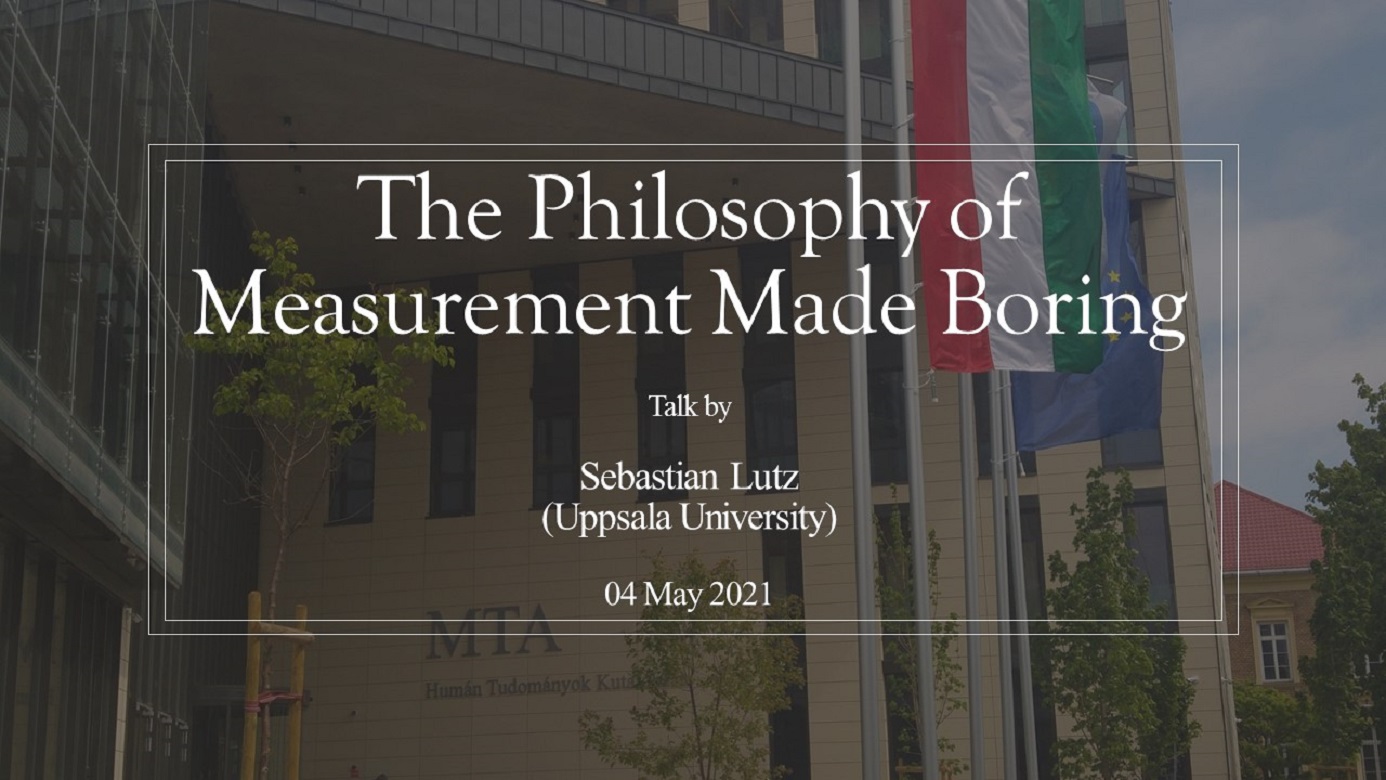
- Details
- Hits: 1838
The Institute of Philosophy, RCH, cordially invites you to the upcoming talk
Sebastian Lutz (Uppsala University)
The Philosophy of Measurement Made Boring
The talk will be online.
Abstract:
I suggest that standardization of quantities is a pragmatically and vaguely distinguished special case of concept formation and that measurement is an inference from empirical results about a standardized quantity given some background assumptions (including laws of nature). The measurement debate is thus but a special case of the debates about concept formation and inference, and the logical empiricists’ positions on these topics can be immediately applied to it. Their positions provide straightforward solutions to alleged problems of conventionalism in the philosophy of measurement, for instance the influence of empirical results on standardization, different methods of measuring the same quantity, improvements of measurements and standardizations, and the roles of theoretical assumptions and of models in standardization and measurement.
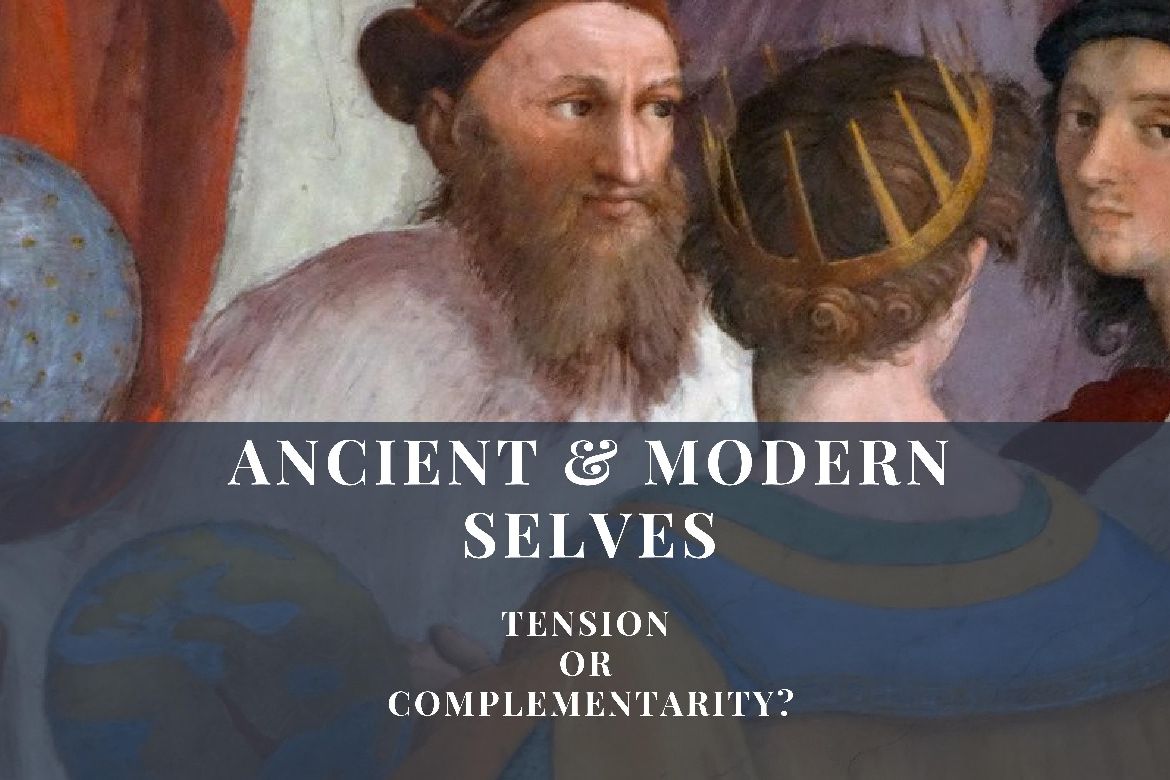
- Details
- Hits: 2676
The Institute of Philosophy, RCH, cordially invites you to the upcoming online workshop on
Ancient and Modern Selves: Tension or Complementarity?
Date: 16 April 2021
The notion of the self is not only a hotly contested topic of debate in modern ethics, but it is unclear whether the ancients at all possessed a clearly formulated concept of it. The work of Pierre Hadot and Michel Foucault on spiritual exercises and the transformation of the self has stimulated some important recent work on the problems of the self in Hellenistic philosophy. Several important scholars and philosophers (like Brad Inwood, Christopher Gill, Charles Taylor and Bernard Williams) have argued, however, that our view of ancient thinkers on the self is profoundly distorted by the Cartesian subjective-individualist model of selfhood typical of modernity.
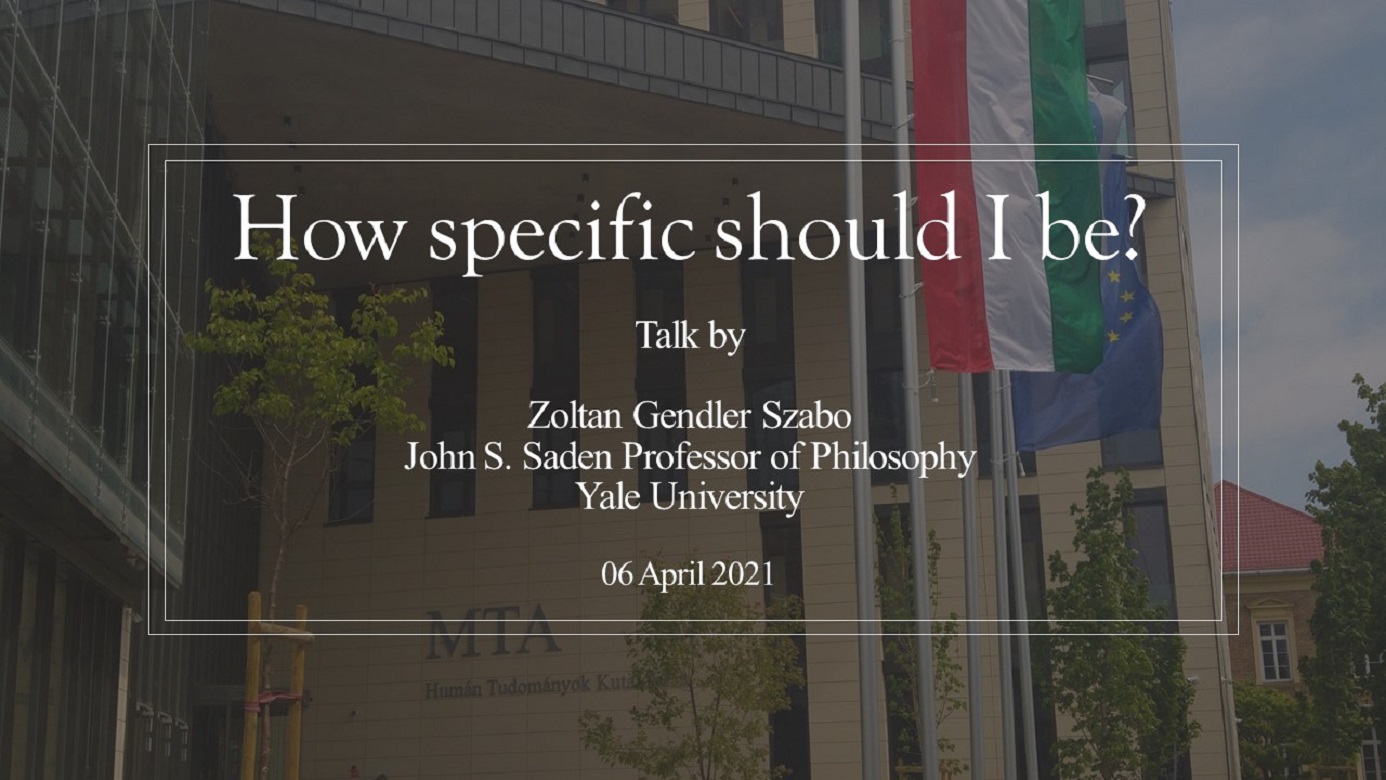
- Details
- Hits: 1659
The Institute of Philosophy, RCH, cordially invites you to the upcoming talk
Zoltán Gendler Szabó (YALE)
How specific should I be?
The talk will be online.
Abstract:
You can’t normally utter ‘I like that car’ out of the blue when there is no car around. The standard view in philosophy of language is that this is because the sentence fails to express a specific proposition in such a context, and hence, there is nothing specific you can say in uttering it. On the other hand, if you point at a car nearby your utterance is unproblematic: it is true or false depending on whether you like the car you pointed at. Alas, the standard view does not predict this – your gesture does not differentiate between the car type and the car token, so there is still no specific proposition for the sentence to expresses, and still nothing specific for you to say in uttering it.
More Articles …
- Lecture in the Husserl Archives in Cologne
- International seminar entitled The migration of ideas and the formation of national philosophical traditions: dialogues across the borders
- Talk by Carl Hoefer
- The Forum of Hellenistic and Roman Philosophy - an international cooperation
- AMS meeting about Heuristics and Inquiry Based Learning
- UPDATE - Ferenc Hörcher's lecture on Roger Scruton's Aesthetics
- Talk by Gyula Klima
- Talk by Rafał Smoczyński POSTPONED
- Westernisers and “Narodniks". Project opening conference
Page 9 of 48


